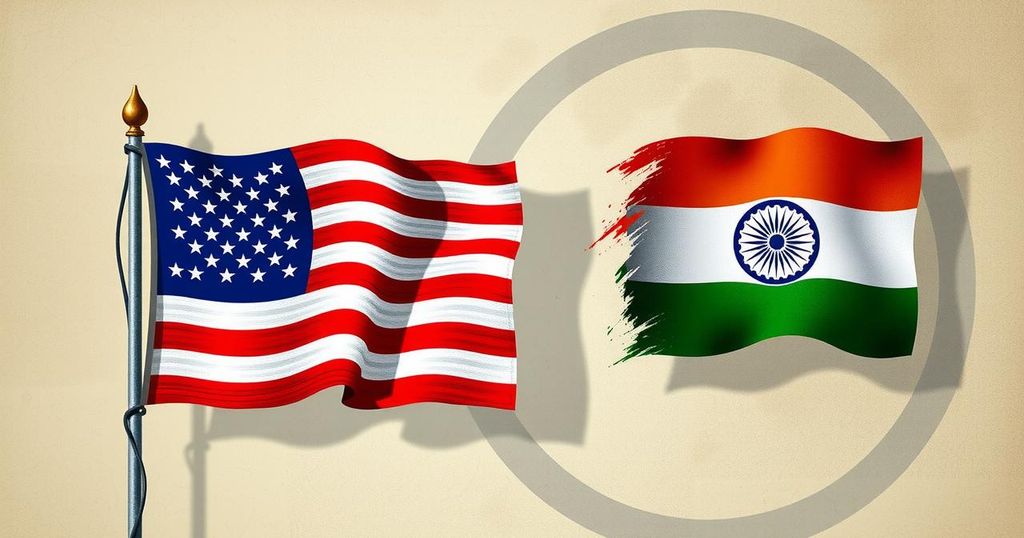The article explores the implications of Donald Trump’s presidency for U.S.-India relations, emphasizing India’s unique position within the BRICS nations. Despite prior tariff threats, India’s strong relationship with the U.S. may lead to advantageous outcomes. The dynamics of trade, particularly the significant imbalance favoring India, and Trump’s transactional policies are highlighted as key factors shaping future negotiations between the two nations.
In the context of U.S.-India relations, the election of Donald Trump as President has significant implications, particularly for India as a member of the BRICS nations. Trump, known for his strict tariffs, has explicitly targeted nations like India which he labeled a “very big abuser” during his prior campaign. Despite these criticisms, India’s Prime Minister Narendra Modi maintains a warm relationship with Trump, which may offer favorable outcomes for Delhi in dealing with American policy under his administration.
India is uniquely positioned within BRICS, as it is considered less anti-American compared to Russia, China, and Brazil. Analysts suggest that this status provides India leverage in discussions, particularly regarding any potential shift away from the U.S. dollar, a topic of interest within the group. Indian Foreign Minister Subrahmanyam Jaishankar reaffirmed this stance, emphasizing India’s lack of interest in diminishing the dollar’s dominance in international trade.
The anticipation of Trump’s second term is tempered by a careful evaluation of trade dynamics. With the U.S. showing a significant trade imbalance favoring India, any imposition of a universal tariff could disrupt this lucrative relationship. Notably, India has become a crucial manufacturing hub, harboring increased imports from the U.S. which reached $73 billion compared to only $35 billion in exports over the past year.
The transactional nature of Trump’s policy approach may present challenges for India as it navigates its interests alongside U.S. demands. The historical precedent set by the 2018 waiver concerning the Chabahar Port exemplifies India’s ability to align national interests with Washington’s expectations, showcasing a potential framework for future negotiations.
Ultimately, while uncertainties persist, India’s diplomatic strategy indicates an optimistic outlook for its relations with the United States under Trump’s leadership, balancing national interests with the realities of international trade and diplomacy.
The article discusses the implications of Donald Trump’s presidency on U.S.-India relations, particularly in the context of India’s status within the BRICS nations. Despite Trump’s previous criticisms and tariff threats aimed at India, the enduring personal rapport between Trump and Prime Minister Modi, along with India’s strategic positioning as a non-anti-American BRICS member, suggests possible advantages for India in upcoming negotiations. The article further examines the economic dynamics between the two nations, particularly concerning trade balances and India’s burgeoning role as a manufacturing hub, as well as the effects of Trump’s transactional policies on bilateral relations.
In conclusion, the relationship between India and the United States under Donald Trump’s potential second term may benefit from the strong personal ties between Trump and Modi, alongside India’s strategic advantage within BRICS. However, the threat of tariffs and the need to navigate complex trade dynamics calls for a pragmatic approach to diplomacy. India appears poised to balance its own interests while maintaining a favorable stance with the Trump administration, reflecting an optimistic outlook for bilateral cooperation in the near future.
Original Source: www.cnn.com







